Tears and laughter erupted among some Dispatch staffers when this was posted to the company Slack channel on Tuesday.
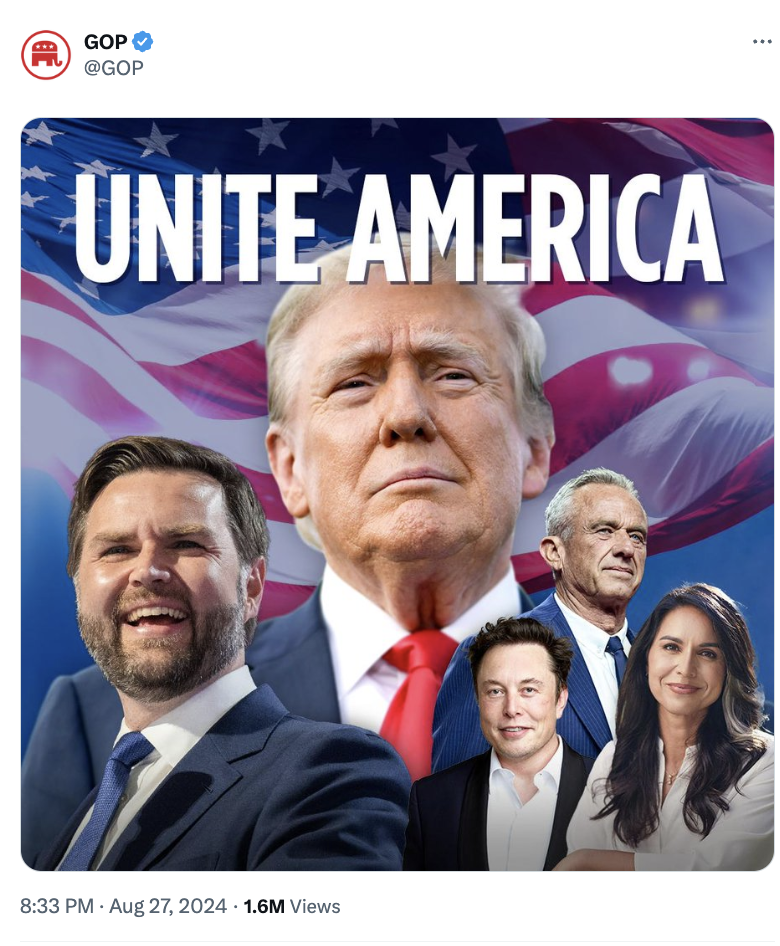
That was the GOP’s way of celebrating the news that Tulsi Gabbard and Robert F. Kennedy Jr. had been named honorary co-chairs of Donald Trump’s transition team, never mind their long histories in left-wing politics. “Only one person in that collage considered himself a Republican 10 years ago,” one of my colleagues observed cryptically, leaving me to wonder whom he meant.
J.D., perhaps? He sure didn’t sound like a Republican eight years ago.
Two things about the image stood out. One is the preposterous idea that “America” is accurately represented by five populist edgelords, all of whom live in close proximity at the ends of the proverbial horseshoe. But that’s in keeping with modern Republican mythology about Trump’s movement reflecting a supposed silent majority: If the only people who count as “real Americans” are those on Team MAGA, then sure, a coalition that runs the gamut from left-leaning Putin apologists to right-leaning Putin apologists is a fair portrait of America.
The other thing that struck me was that Republicans evidently believe this image benefits them politically. Somehow we’ve arrived at a place as a country where Donald Trump is no longer weird enough in his own right to lock down “the weird vote” this fall and needs cover on his weirdo flank from the likes of Kennedy and Gabbard. Worse, he and his party seem to think there are more votes to be had by appealing to that weirdo bloc than there are to be lost among normie voters by doing so.
And they might be right. Kamala Harris imagines that she can build a winning coalition by targeting the base of the horseshoe whereas Trump imagines that he can build one by targeting the ends. Would anyone bet heavily in 2024 that there are more gettable votes to be had in the mainstream center than at the kooky fringes, particularly given how intensely mainstream voters are polarized?
What caught my eye about Trump’s play for “the weird vote” is that it’s playing out in parallel with outreach to some of the GOP’s most prominent traditional—i.e. normal—conservatives. At around the same time I was barf-chuckling over the “Unite America” tweet, news broke that Georgia Gov. Brian Kemp will headline a fundraiser for Trump in Atlanta on Thursday. You remember Kemp, don’t you? He’s the bad, disloyal, “very average” governor who, according to the man he’s fundraising for, wants Republicans to lose.
A few hours earlier, Semafor reported that Trump is interested in having Nikki Haley campaign for him. The fact that Trump also regards her as “very disloyal” and has told donors that he doesn’t like her is no obstacle, apparently. No formal discussions have occurred yet because egos have gotten in the way, with each camp believing that the other should make the first move, but the candidate apparently would “love to have her go around” on his behalf. And no wonder: Haley might be able to reach old-school Republicans who have hung on for nine years but aren’t sure they can take four more.
She and Kemp are probably the two most prominent Reaganites left in the GOP with staunch anti-Trumpers like Mitt Romney and Liz Cheney headed for retirement and the political wilderness, respectively. Suddenly Haley and Kemp find themselves sharing a political tent with the likes of Kennedy and Gabbard. Can a coalition between left-ish kooks and traditional conservatives endure?
Well, sure. It has since 2015, hasn’t it?
Why conservatives will stay.
One of my editors recalled this morning how reassured many conservatives felt in 2016 when Trump, the populist loose cannon, chose sane, sober Reaganite Mike Pence as his running mate. That was a good omen for how Trump would govern as president, they believed.
How are they feeling now, he wondered, with J.D. Vance replacing Pence on the ticket, Trump pivoting to being functionally pro-choice, and Kennedy and Gabbard being empowered to “help pick the people who will be running the government” if Trump wins?
Honestly, my guess is that they feel A-OK.
Not as good as they would have felt with Kemp and Haley running the transition team, perhaps, but the frogs who’ve stuck with this loathsome party are surely used to being boiled by now. They trust Trump to do what he thinks is necessary to win; if that means putting anti-vaxxers and excuse-makers for Syria’s Bashar al-Assad in charge of personnel to squeeze a bit more support out of “the weird vote,” well, he must have his reasons.
Most conservatives have already made peace with supporting a pro-tariff, isolationist, coup-plotting convicted felon for president. Tossing Tulsi Gabbard into the mix isn’t going to suddenly send them to their fainting couch.
The example of Kemp and Haley proves the point. If the direction of the party as captured in the “Unite America” image truly bothered their conscience, they wouldn’t be gearing up right now to campaign for Trump, would they?
“Actually, they might,” one might say. “They might feel privately disgusted by Trump’s horseshoe strategy and quietly hopeful that it’ll end up costing him another election. They’re being good soldiers for the party in the expectation that another defeat will send the Republican base in search of an electable conservative in 2028, like Brian Kemp or Nikki Haley. They’re just being opportunistic.”
Eh, maybe. I’m sure the thought has crossed their minds. But if Trump loses this fall and the GOP base quadruples down on populism by choosing another Trumpy nominee in 2028 (possibly Trump himself!), do we think at that point Kemp and Haley would say “no mas” and quit the party?
I do not. Partly that’s because they’re both young by political standards and can afford to go on deluding themselves about a looming reversion to Reaganism for years to come. If Brian Kemp ran for president in 2040, he’d still be younger than Joe Biden and Donald Trump are right now. He and Haley are playing the long game.
But even if you assured them that they’ll never lead their party, I suspect they would find ways to rationalize hanging on and reconciling themselves to political leadership by the likes of Vance, Gabbard, and Kennedy. If they went off to start a third party, for instance, they’d never be more than spoilers. And if they became Democrats, they’d find their new party too anchored ideologically by its liberal base to move far enough to the right to accommodate them. Insofar as they care sincerely about conservatism as an ideological project, it’s easy for them to justify sticking with the GOP and using whatever influence they still enjoy to nudge the party toward more Reaganite policies.
That logic will end up appealing to many rank-and-file conservatives too. Better to hang around and ensure that the Republican Party is 20 percent as conservative as it used to be than to quit and leave it with no reason not to abandon conservatism altogether, right? How well would conservatism be served if the GOP fractured, guaranteeing easy Democratic victories for years to come?
There’ll always be an excuse to stay—which, ironically, encourages Trump and his populist courtiers to go on marginalizing conservatives. The reason he chose Pence in 2016, after all, is because he needed a Reaganite to vouch for him among mainstream conservatives. Those mainstream conservatives have long since either quit the party or joined Trump’s cult of personality, allowing him to take their support for granted and pursue new constituencies who are reluctant to support Republicans. Like pro-choicers. Or “the weird vote.”
Hence the paradox of conservative Trump support: The more blindly loyal to him that Kemp, Haley, and other Reaganites are, the more political freedom he has to make the GOP less Reaganite. Only a man with a “blank check” from his base to do everything possible to avert Democratic rule would dare risk offending them by wooing the postliberal dregs of American politics.
So congratulations, I guess, to Kemp and Haley on the Kennedy and Gabbard appointments. Trump sincerely couldn’t have done it without them. By sustaining the Republican hostage crisis, they’ve assured their own ghetto-ization.
Why populists will stay.
I’m tempted to say that the Kemp-Kennedy coalition can endure only if the kooks are in charge.
We don’t need to theorize about whether partisan conservatives would acquiesce in leadership by populist cranks. They’ve done it. They’re doing it right now. The theory is proved. QED.
Whether the cranks would acquiesce in a Reaganite restoration is trickier. Not all would: Voters who came from the third-party fringes of politics into the mainstream with Trump will logically be more comfortable returning to those fringes if they don’t get their way than longtime mainstream Republicans would be. Crossover cranks like Tulsi and RFK aren’t sticking around to run cover for Nikki Haley.
Populists are also less prone than conservative partisans to view government by Democrats as a scenario to be avoided at all costs. The point of the “uniparty” rhetoric among MAGA types is that they don’t regard rule by Reaganites as meaningfully preferable to rule by liberals. For all the “Flight 93 election” windage, some Trump fans are fully willing to let the plane crash by skipping the general election if their man doesn’t get to be the pilot.
The prospect of Republicans losing elections just doesn’t bother them much. If they don’t want to be led by a Brian Kemp or Nikki Haley, “but Democrats!” might not suffice to convince them to play ball.
The cult of personality around Trump further complicates populists’ partisan loyalties. The Republican Party is a dictatorship, and hero worship of the dictator does a lot of the traditional work usually done by policy of binding members to the party he leads. When Trump retires or dies, it’s anyone’s guess how the bonds between the GOP and MAGA fanatics might or might not fray. It will depend on who succeeds him as leader, how charismatic they are, and how scary the Democrats seem by comparison.
If the right gets a dynamic nationalist demagogue like Tucker Carlson as their new champion, maybe that’s enough to maintain populists’ partisan allegiance. But what if they get Brian Kemp or Nikki Haley?
It can safely be said, I think, that a Kemp-Kennedy or Haley-Gabbard coalition is more likely to endure if the Kennedys and Gabbards are in charge. But might it endure if it’s led by the Kemps and Haleys?
Sure. Isn’t that the story of the pre-Trump GOP in large part?
Trump didn’t magically convert millions of right-leaning voters to populism in 2016. The Tea Party movement that preceded him was itself ferociously populist; Trump’s trick was to show that most members were willing to ditch its conservative small-government underpinnings if offered culture-war demagoguery as an alternative. Still, the fact remains that many millions of Republicans who happily voted for Trump that year also happily voted for the “severely conservative” Mitt Romney in 2012, enough so to have given Romney a larger share of the national popular vote than Trump has managed in either of his two campaigns.
To this day, it’s unclear how much of Trump’s support is earnestly ideologically nationalist in the Tucker mold and how much is just free-form anti-elite populism willing to accommodate whichever ideology its leader gloms onto. Does anyone doubt that if Trump threw his full political weight behind demonizing Vladimir Putin or demanding a balanced budget that those positions would quickly become Republican orthodoxy again?
Of course, asking populists to replace Trump with a Romney-esque Kemp or Haley in 2028 is different from asking them to support Romney in 2012. They’ve had a taste of real power in the party now. To revert to Reaganism at this point would mean losing something momentous that they’ve gained, and loss aversion is a powerful incentive.
But that works both ways. How willing would influential populists be to forfeit the power they’ve gained within the GOP since 2015 by quitting the party instead of grudgingly accepting a primary victory by Nikki Haley or Brian Kemp?
Take Colorado Rep. Lauren Boebert, one of the most prominent Republican populists in the House. She was a teen mom and high-school dropout who lived the American dream by opening her own restaurant and eventually getting elected to Congress, a classic story of a citizen-legislator. (Her relentless demagoguery makes it a little less “classic.”) If anyone should be at peace with giving up the loathsome Washington swamp and returning to her average-joe roots, one would think it’s her.
Nope. Boebert’s in no hurry to leave the capital, it turns out. If forced to decide between remaining a member of a party led by Kemp and launching a longshot independent candidacy to keep her seat, which do you suppose she’d choose?
Or consider the MAGA wing of the House Republican majority, which has gotten quite comfortable as a largely impotent rump of the conference despite having the most powerful man in the party as a patron. They failed to stop their leaders from raising the debt ceiling or from funding the government or from appropriating billions in new aid for Ukraine. Yet when one member of their ranks sought to oust Kevin McCarthy as speaker as punishment, only eight votes to remove him came from the GOP.
Later, when Marjorie Taylor Greene moved to oust McCarthy’s “uniparty” successor, her motion got just 11 Republican votes. That feeble episode of rebellion was ironic, in fact, as Greene herself has gotten chummy enough with the traditional Republican establishment to have made a staunch ally of the noted RINO McCarthy during his speakership.
Populists are used to being in the minority. Why, one might even suspect that they enjoy it, as it gives them the powerful party elite as a popular foil and spares them from having to make the hard compromises required of governing. If Kemp succeeded Trump as GOP nominee, I wouldn’t expect Greene to quit Congress in frustration at having been saddled with a “uniparty” candidate. I’d expect her to double her fundraising operations and media appearances and to position herself as the scourge of some members of the new conservative leadership and a useful ally of others.
And to enjoy every minute of it.
Democrats are ahead of Republicans in domesticating their party’s radicals, but I wouldn’t bet a kidney against Boebert or Greene eventually demonstrating a degree of opportunistic respect toward President Kemp of the sort that Alexandria Ocasio-Cortez routinely demonstrates toward President Biden. Kooks influence the institutions they penetrate but those institutions also influence the kooks.
In the end, a Reaganite restoration might damage the party less than the populists responsible for the Republican hostage crisis would have us believe. All it’ll take to test that theory, perhaps, is another Trump defeat this fall and a clear-eyed assessment by the right afterward that Trumpism is a losing proposition electorally. Only by nominating someone with greater appeal to the middle can the GOP win a majority.
Best of luck with that, America. You’re gonna need it.
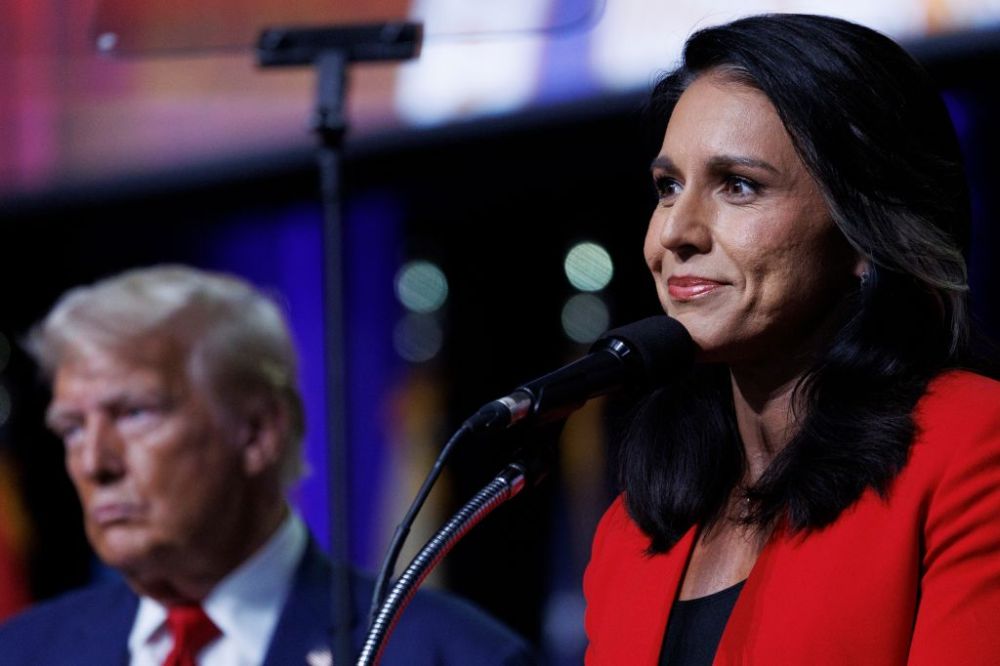

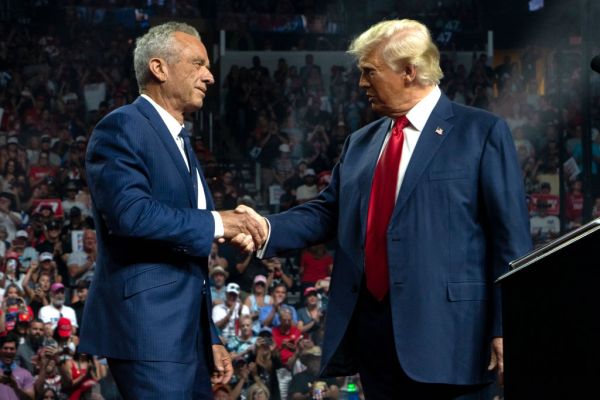
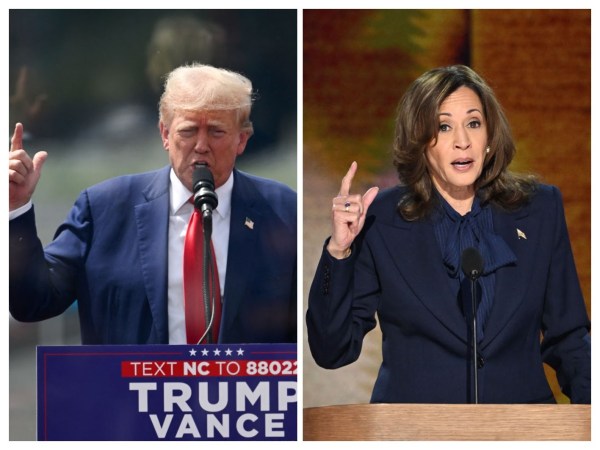
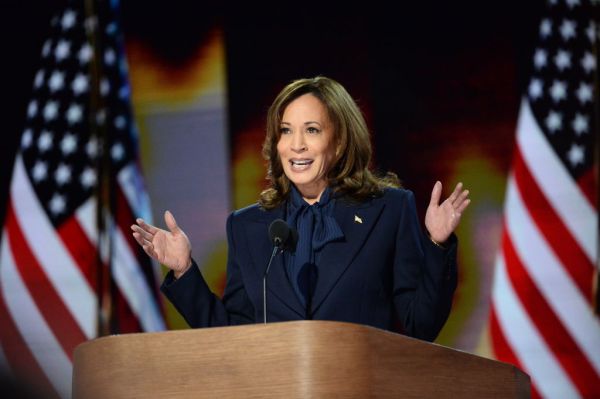

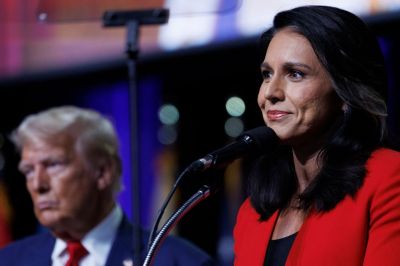
Please note that we at The Dispatch hold ourselves, our work, and our commenters to a higher standard than other places on the internet. We welcome comments that foster genuine debate or discussion—including comments critical of us or our work—but responses that include ad hominem attacks on fellow Dispatch members or are intended to stoke fear and anger may be moderated.
With your membership, you only have the ability to comment on The Morning Dispatch articles. Consider upgrading to join the conversation everywhere.